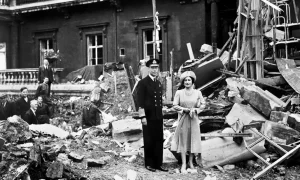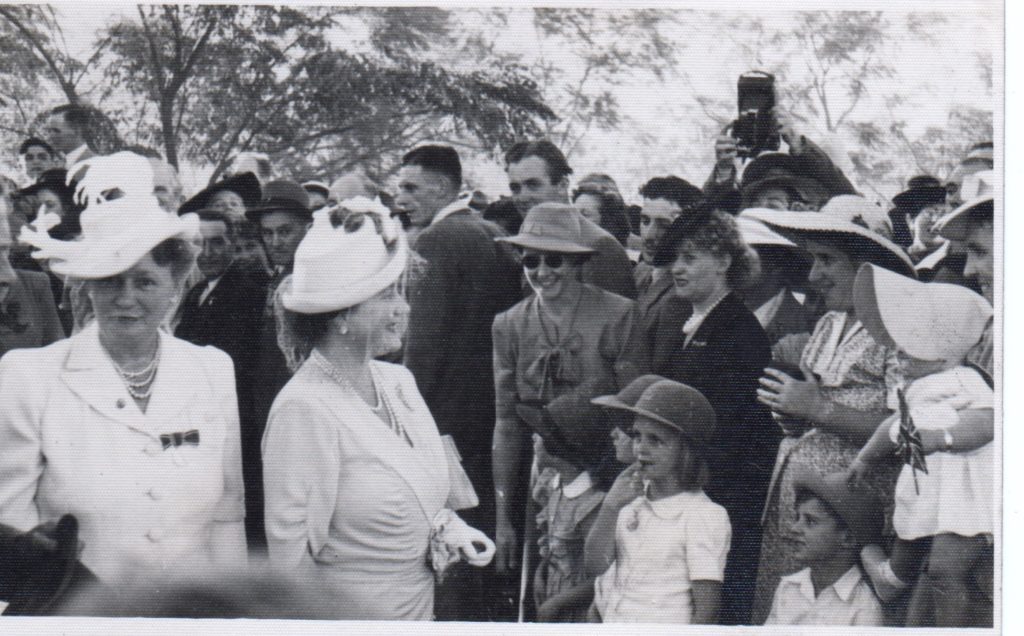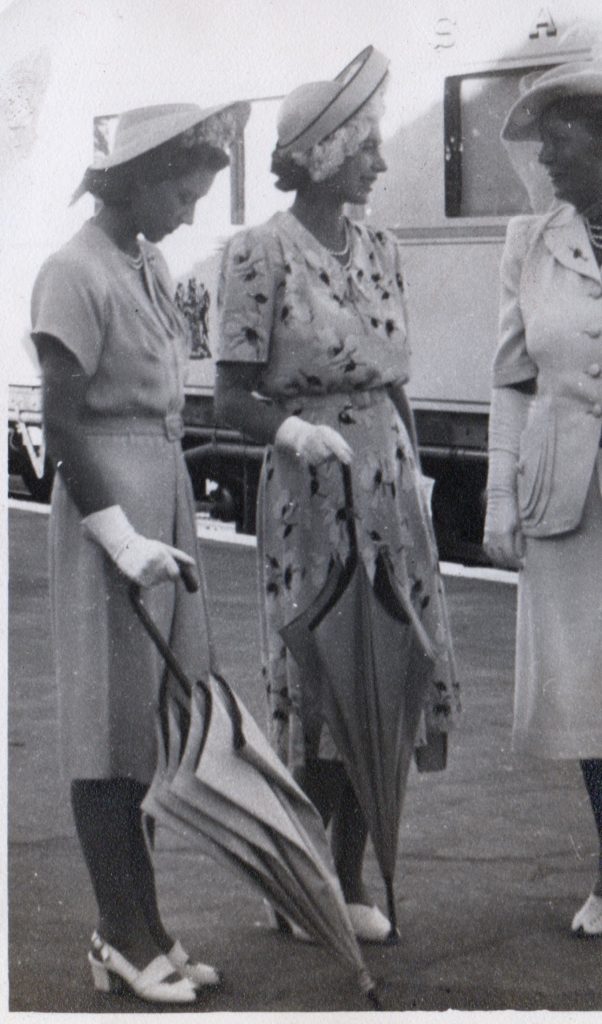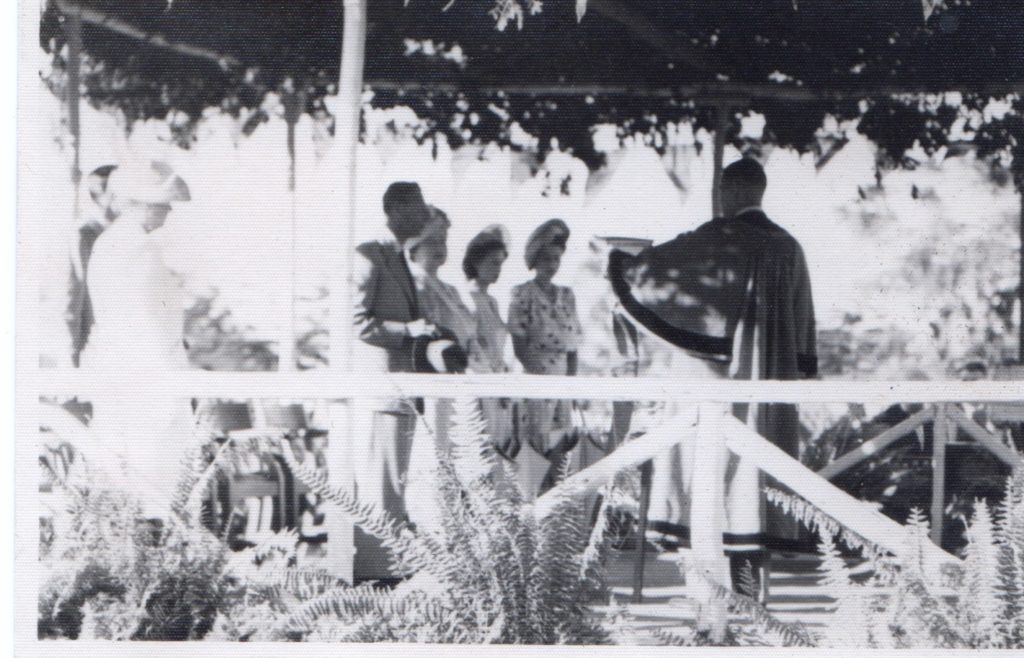Keeping Their Hats On

With all the negative rhetoric over Empire we might be well to remind ourselves that without the participation of her Empire Britain would not have prevailed against Hitler, Mussolini and Hirohito and we’d all be speaking German today.

Stoic, King George VI and Queen Elizabeth kept their hats on during the sixteen bombings of Buckingham Palace and stood firm, comforting their subjects in the ruin of the Blitz winning their people’s hearts. 1940. (Photograph: PA Archive/Press Association Images.)
Southern Rhodesian forces, including RAR askaris, serving in the East African Campaign, the European Arena and in the Burma Campaign, were distributed in small groups in order to spread risk.
Farmers too old to see service oversaw their neighbor’s farms in their absence. Thousands of additional Africans were conscripted from rural areas to work on the aerodromes and later on the farms as well, as the war dragged on.
Taking advantage of Rhodesia’s vast empty spaces eleven air training schools were set up early in the war. Sixteen of Que Que’s Globe and Phoenix Gold Mine’s 100 employees who joined the RAF were killed in action.
In 1947, The Royal Family embarked on a three-month, 10,000 mile tour to thank the people of the Southern African dominions for their disproportionate contribution of men and materials to the war effort. No town was too small to be acknowledged.
So, Que Que with a population of 1300 Europeans, 5000 Africans and 147 Indians and Coloureds, was scheduled for a White Train stop. The train was an apparition out of the red dust of Africa, shimmering in the heat of the African sun. Everyone turned out to see it pulled by its brand new royal blue Garratt engine adorned with the royal insignia.
The smallworkers took the unprecedented step of stilling their stamp mills and come in. The farmers and ranchers opened and closed their many farm gates, forded the drifts and came in too. The nurses trundled wheelchaired patients to the station. All stores closed for the day.
A couple of pioneers, school children, Cubs, Boy Scouts and Brownies and Girl Guides, the Sons of England, the Caledonian Society, the Churches and the Jewish community, the Indian community and the mine’s African school master and a local chief were in attendance.
Mayor Harry Watt, big and imposing, turned out in full regalia, wearing the mink trimmed crimson robe and gold chain from which Que Que’s medallion hung. Made of 24 carat gold it had been forged at the Globe and Phoenix Mine. Confident, with polished Oxfords, he had his best foot forward to welcome the King and lead the entourage of carefully selected dignitaries.
Alighting from the White Train, the King, in a brown suit and a brown felt fedora with a center dent in it was altogether unassuming. The Africans having climbed the jacaranda trees behind the throngs of spectators had the best view, of course. The chiefs of yesteryear had been unmistakable; big, powerful, glistening, dressed in leopard skins and civet tails, there had been no mistaking them. This must have been a disappointment lacking jeweled crown and velvet robes.
That was the Royals charm of course. For all the pomp and ceremony, they were disarmingly unassuming.
The Mayoress had risen equally to the occasion with a sweeping hat adorned with ostrich feathers, three strings of pearls around her neck, white gloves above the elbow and peep toe shoes. Top fashion had indeed come to the far reaches of Empire. It was hard for the unfamiliar to tell the difference between the middle aged slightly plump Queen and her hostess.

But under the shade of parasols the two Princesses, Elizabeth and Margaret, in cool summer frocks and peep toe shoes chatted with the crowds pressed against the red, white and blue cordon brandishing hand held Union Jacks.

A retreat had been built for the Royals on the Bembezaan River but the King was too ill to avail himself of it. Although the White Train was fully staffed with a dining car presided on by a royally appointed chef, afternoon tea was welcomed at the Railway Park summerhouse all set about with the proverbial sword ferns planted in worn out enamel sanitary pails.

The surprise hit of the day was the quiet appearance of none other than Spitfire ace, and national hero of Battle of Britain fame, Peter Townsend, trailing the King as his equerry. The Globe and Phoenix Mine employees had no trouble identifying him, but, unfortunately, the tight schedule did not allow for a rousing round at the bar to reminisce.
